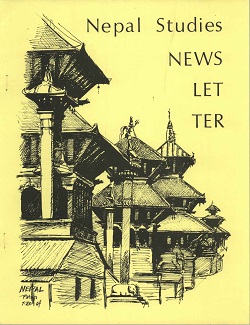Abstract
Zanskar valley, nested in the Indian Himalayas is at a turning point of its history. After centuries of Buddhist-Muslim marriages, these are now rejected by both religious groups. This paper addresses the impact of the rise of religious fundamentalism on social regulation and communal negotiation in Padum and Zanskari society. This is a Tibeto-Burman speaking Himalayan population made up of a majority of Mahayana-Buddhists and a minority of Sunni-Muslims. Based on ethnographic research conducted since 2001 in the local language, the anthropological approach presented here emphasizes the importance of speech acts and also uses a socio-cultural and psycho-sociological perspective. It also stresses historical and bibliographical investigations as well as research on the latest local political developments.
Recommended Citation
Deboos, Salomé. 2013. Religious Fundamentalism in Zanskar, Indian Himalaya. HIMALAYA 32(1).
Available at:
https://digitalcommons.macalester.edu/himalaya/vol32/iss1/12


